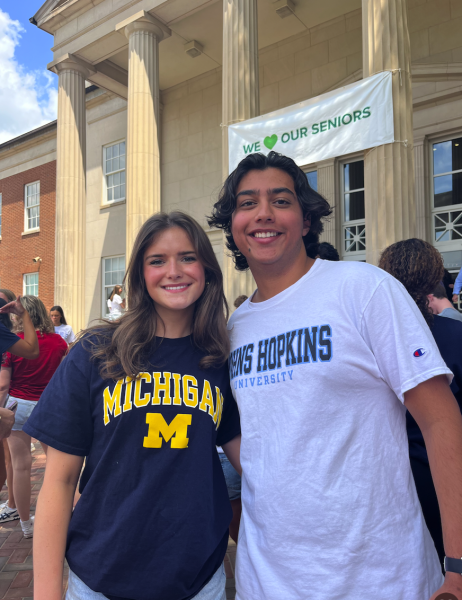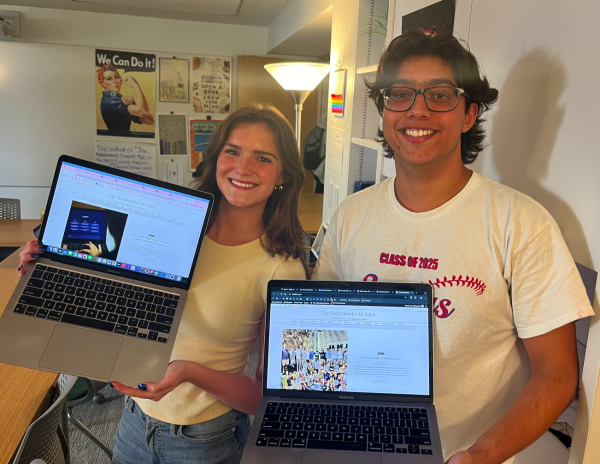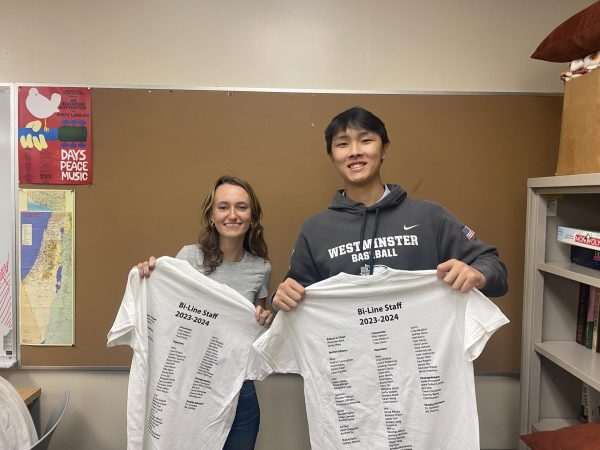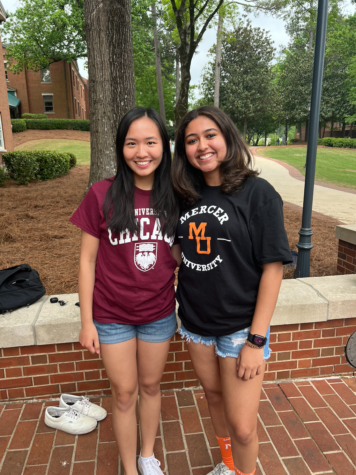Letter from the Editors – January 2018
What are we learning? Do you ever ask yourself this question? What kind of knowledge are schools supposed to equip us with? Is it their responsibility to make us good people or good students? I’ve been thinking a lot about the nature of education lately because of JanTerm, and the way that I had to utilize adaptable knowledge rather than learned, stored, textbook knowledge. And even though “adaptable knowledge” sounds somewhat ambiguous, it just means going in to a situation blind and assessing the landscape with observation and intuition. For example, while I was in Israel for the JanTerm course of Global Education: Documentary Film in the Holy Land, or I think that’s what it’s called, I had to listen, rather than spout my stored knowledge, trying to be the smartest one in a room. The level of education I was going to receive was dependent on me, how curious I was, how many questions I asked, how many people I talked to along the way. And I loved it, as one would expect. However, it was the small nuances of everyday life there that I will remember: the man selling apples near the Syrian border, the Coptic priest I interrogated about Egyptian persecution, our tour guide pointing out the distinct Palestinian and Israeli homes.
And while I was there, I wondered why I had such limited knowledge about Middle Eastern current events and history. Is it my fault or the education system’s? My fault, because I shouldn’t need an incentive to be a curious member of society. I should have the impetus to explore the conflicts myself, whether researching online or asking history teachers at Westminster. The education system, because it’s their broad set of curriculum goals that private schools have to emulate as well. Are they (they meaning the ubiquitous school board, on the local, state, or federal level) teaching us the “right stuff?”
I’m not suggesting a revolution of sorts – I’m not nearly informed enough to imply such a thing. All I’m saying is that I’ve been mulling over the nature of education recently. A teacher once told me that our current system of educating young people is stupid, because it’s not meant to create problem-solvers, creative minds, or even “out of the box thinkers” (yes, I hate that phrase too). And yet, all of those skills are what we need “in the real world,” especially if we want a job at Google. He said we perpetuate an educational model that was implemented in the Industrial Revolution, a time when everything was standardized, homogenized. Children are supposed to grow up to be relatively the same, you know, with a good head on their shoulders and a certain degree of subservience required to put those heads down and do the hours of work. The day is monotonous, and our brains aren’t designed for that.
And to be fair, I do think Westminster does a much better job than most in trying to pivot away from that rigid system, because here I am writing this after JanTerm. English classes especially are shaped towards removing bias to different cultures, different texts, different time periods, and usually consist of some untraditional methods of teaching. I’m not necessarily critiquing my school, but how society as a whole prioritizes only one mode of education. My whole life has been about receiving information, processing it, worksheets, storing information, worksheets, tests, regurgitation of information.
All I ask is that you look critically at what people are telling you. And look critically at the things you tell yourself are and aren’t important. Hopefully this issue of the Bi-Line answers some of your questions and makes you form new ones. Never settle. Have a nice day.



